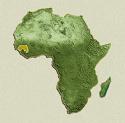|
Mining Code 1995 |

FULL PDF VERSION |
Are considered to be mines, those deposits known as containing mineral or fossil substances other than liquid or gaseous
hydrocarbons. As regards the rights of persons and the rights of the State, it is specified:
As for the mining convention, the Code specifies the following:
Licenses for industrial-scale mining and for a mining concession are subject to mining conventions of which models are
determined by a Presidential decree.
The mining convention defines the rights and obligations of the parties with regard to legal, financial, fiscal and social
arrangements applicable to the operation during the life duration of the convention. The stability of these conditions is
guaranteed by such covenants.
In the case of public participation along with third parties in the shareholding of one or more mining or quarry operations,
the type and means of the government's participation are expressly defined in advance in the convention accompanying the mining
exploitation or the mining concession license.
The mining convention is signed by the Minister in charge of the mining sector and by the prospective developer or his duly
authorized representative; it is enforceable and binding upon the parties after its approval by a Presidential decree in the
case of a mining exploitation license or after ratification in the case of a mining concession.
Upon the coming into effect of the mining convention, no valid modification can be made without the prior written consent
of the parties which will come into force only in compliance with the procedure.
Mining or quarry operations must be conducted in an environmentally-friendly way.
The holder of a mining or quarry license as well as enterprises operating for themselves are required, as much as possible,
to encourage the transfer of technologies and skills to Guinean enterprises and personnel while conducting their activities.
Mining Licenses:
Quarry Licenses:
Home | Copyright ©2000-2009 onwards: WT/africa-afrika.org |
Legal Notices